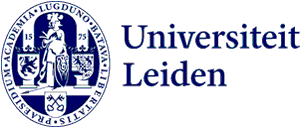Jan van de Streek and Jan Vleggeert on tax evasion Uber
Tech company Uber uses various tricks via the Netherlands to avoid paying tax on its profits. A $16 billion inter-company loan from Singapore has prompted questions with experts claiming the loan is not under arm’s length terms. MEP Paul Tang wants Brussels to investigate.
According to the Netherlands Bureau for Economic Policy Analysis (CPB) and the European Commission, these types of loans are part of the standard repertoire of companies that want to avoid paying tax. Though it is a legal arrangement, the loan must still meet what is known as the arm’s length principle: if the loan had been provided by an independent external party, like a bank, then the same terms would have to apply.
Experts claim that this is not a loan under arm’s length terms since it is interest-free up to and including 2039. No independent party would ever consider providing an interest-free loan with a term of twenty years.
In an article on investigative journalism platform Follow the Money, Professor of Tax Law Jan van de Streek says he appreciates these questions. 'Calculating the transfer price of these types of inter-company transactions is no exact science, there is always room to haggle. To establish whether the limits have been exceeded would require an investigation into comparable loans in the market. If no bank would provide a loan under these terms, then Uber is certainly not allowed to deduct the interest from its profits.'
No profit
The new Dutch holding is yet to make a profit. But even if Uber does start to make a profit again this year, as its CEO Khosrowshahi expects, the company will still pay hardly any tax. The former highly profitable Bermuda route has been replaced by a new trick where the Netherlands is designated as the primary location for tax purposes.
This is hardly surprising, says Professor of Tax Law Jan Vleggeert in the same article. He refers to what he said in 2018 about the new source taxation on interest and royalties, saying it was ‘a publicity stunt by the Dutch government that was doomed to fail’. Vleggeert: 'My view has not changed much since then. Although it has had some effect, there are far tougher measures that could be considered. The list of countries the Netherlands considers to be tax havens is by no means complete, and has too few countries on it to be effective. A company can easily exchange one structure for another which will work just as well.'
